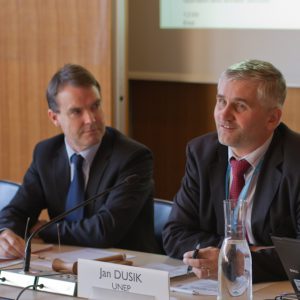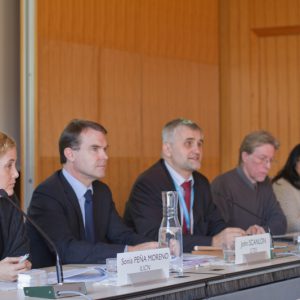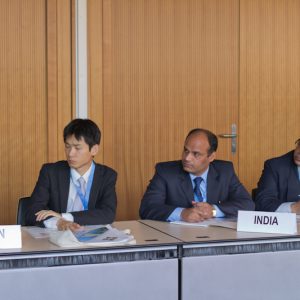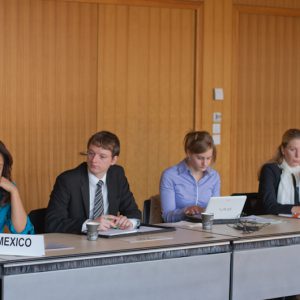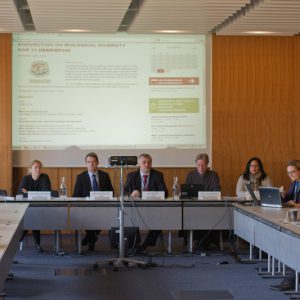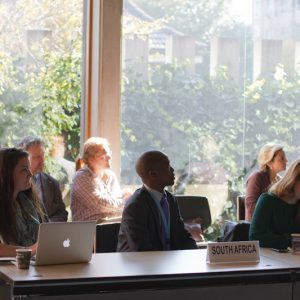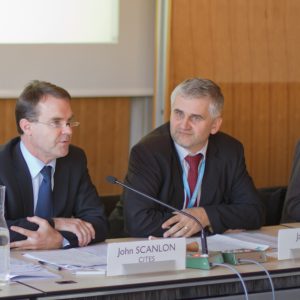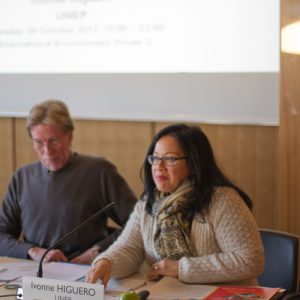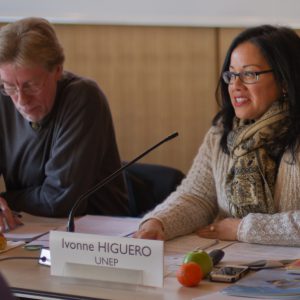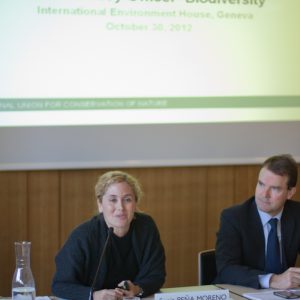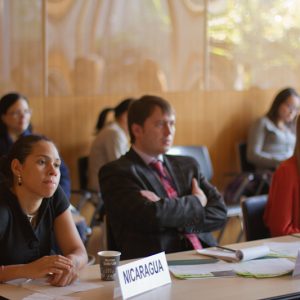Événement
Convention on Biological Diversity COP 11 Debriefing
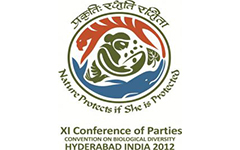
30 Oct 2012
10:00–12:15
Lieu: International Environment House 2
Organisation: Geneva Environment Network
Background
The eleventh meeting of the Conference of the Parties (COP 11) of the Convention on Biological Diversity (CBD) was held in Hyderabad, India, from 8 to 19 October 2012. This meeting took place during the United Nations Decade on Biodiversity, which serves to support and promote implementation of the objectives of the Strategic Plan for Biodiversity and the Aichi Biodiversity Targets.
A roundtable providing an overview of the outcomes of the Hyderabad meeting delivered by high-level representatives of UNEP, MEAs and NGOs, was organized by the Geneva Environment Network.
Following the impressive package adopted at the previous CBD Conference of the Parties in Nagoya, in 2010, COP 11 marked the move from policy-making to implementation. The meeting adopted 33 decisions on a range of strategic, substantive, administrative, financial and budgetary issues.
The CBD COP11 meeting will probably be remembered for its intense negotiations on financial issues. Developed countries agreed to double funding to support efforts in developing states towards meeting the internationally-agreed Biodiversity Targets, and the main goals of the Strategic Plan for Biodiversity 2011-2020. In reviewing global progress in implementing such measures, the COP reaffirmed the need for enhanced technical and scientific cooperation among countries, while underlining the potential for enhanced cooperation among developing countries.
Other key decisions included new measures to factor biodiversity into environmental impact assessments linked to infrastructure and other development projects in marine and coastal areas.
Countries have sent a clear signal and delivered additional commitments underlining the fact that biodiversity and ecosystems are a development priority and central to a transition to an inclusive Green Economy.
Presentations
The four panellists were among the 6,000 delegates representing governments, UN agencies, intergovernmental, non-governmental, indigenous and local community organizations, academia or the private sector, who gathered in Hyderabad earlier in October. They all thanked the Indian government for their warm welcome.
For UNEP-TEEB and IUCN presentations, please refer tot he powerpoints presentations downloadable at the bottom of the page.
Agenda
10:00
Coffee & Tea
10:15
Welcome and Introduction
Jan Dusik, Acting Director, Regional Office for Europe, UNEP
10h20
Overview of the major objectives achieved and outcomes
John Scanlon, Executive Secretary General, CITES
Nick Davidson, Deputy Secretary General, Ramsar Convention
Ivonne Higuero, Ecosystems Management focal point for Europe, UNEP
Sonia Pena Moreno, Senior Biodiversity Officer, IUCN
11:20
Question-and-answer session
12:00
End
More information
https://www.genevaenvironmentnetwork.org/wp-content/uploads/2020/05/einvitation_30_october_2012.pdf


